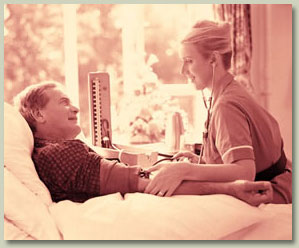Hospices are medical facilities designed to treat patients who have terminal illnesses. This is where immediate relatives lodge their ailing love ones for further medical attention. A hospice care has a special role in the lives of its patients. Its main goal is to improve the quality of their lives before succumbing to such illnesses. It is a special type of medical care in that a 24/7 monitoring is administered by a nurse or a medical specialist to ensure proper handling of patients. Hospices are like Assisted Living Centers but with minor differences. But hospices do have some issues too, regardless of its use. And there are at least three of them.
Finding the Right Answer
The question whether hospices have the right answers and responses to every patient in need of help is still up for grabs. This is a relative question, so normally it also has a relative answer. A hospice care, more or less, does not concern itself with finding the right answer. They are instituted to give extra medical help to such patients, and subsequently not to engage in a discussion or debate.
What about Depression?
There are others who choose to receive medical help inside a hospice care than anywhere else, including their homes. Most hospice care patients say that they get depressed while dealing with their illnesses away from any companion. Depression is already prevalent in the US. And those who suffer from it get to have the option of dealing with it with hospice care.
What about Anguish?
Patients are also anguished especially when they are alone and left without any interaction from other people. These patients are in the last stages of their existence, so being anguished comes with the territory. But that is one concern that hospice care is trying to alleviate.
